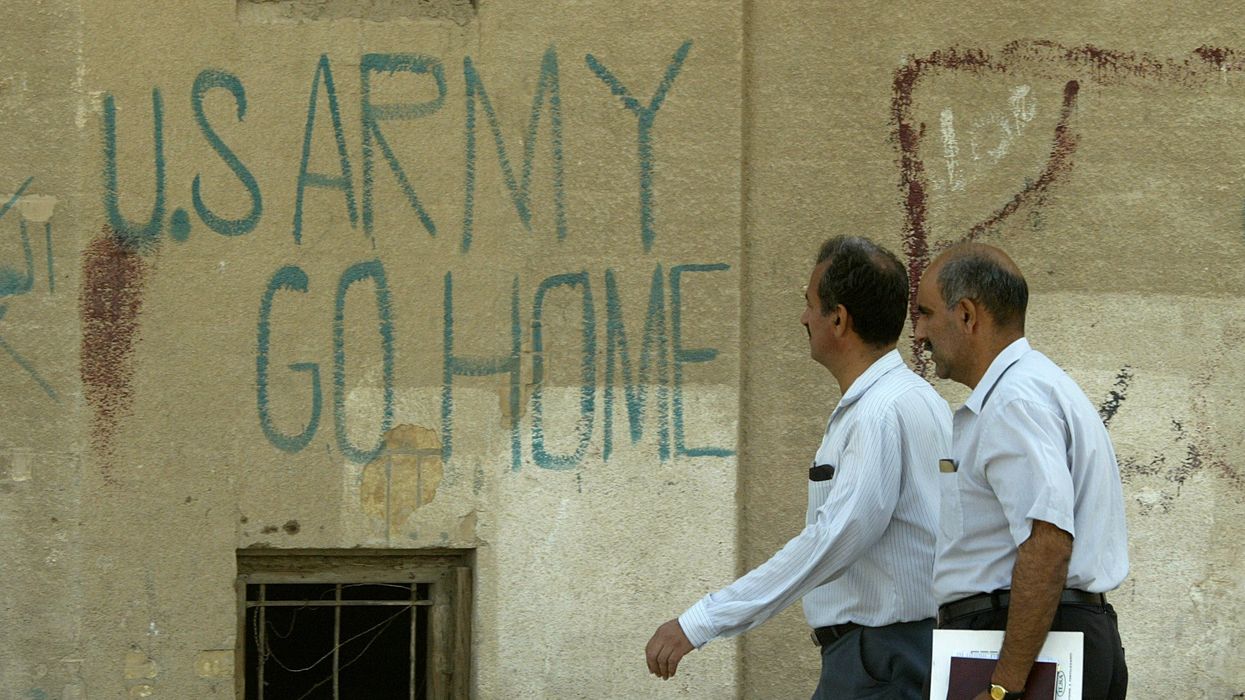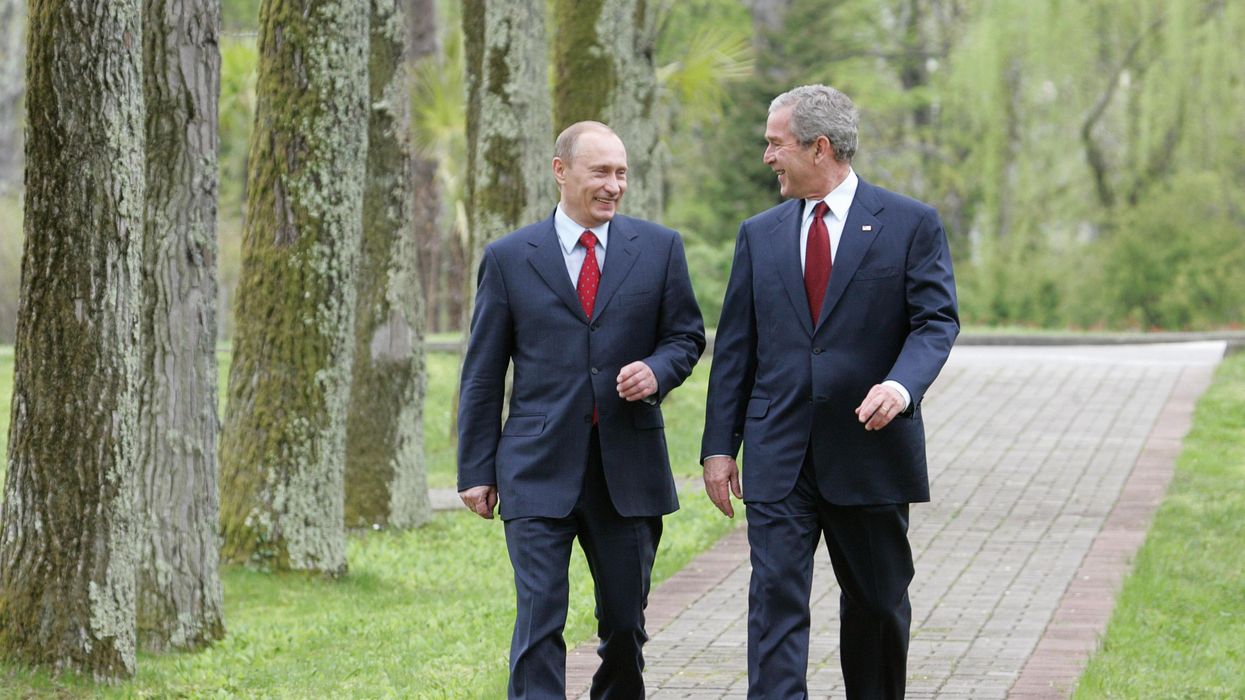It Is Time for a National Reckoning About the Iraq War
Twenty years ago, the U.S. destroyed Iraq with an invasion that also constituted an attack on the very concept of the international rule of law.
The attack against Iraq by the United States and its coalition in 2003 was a blatant and reprehensible act of aggression for which there has yet to be any meaningful accountability. At least hundreds of thousands and possibly more than one million Iraqis lost their lives through this illegal undertaking. Millions more were displaced. The self-determination of the people of Iraq and their ability to choose their own destiny and place in the world was irreparably shattered.
Numerous cultural and political elites in the United States gleefully supported the war as a courageous or even joyous act. It was the opposite. The Iraq War constituted an attack on the very concept of the international rule of law. In addition to the injuries inflicted upon Iraqis, two decades have now passed since the invasion without any examination of how U.S. conduct has contributed to current international anarchy and aggravated great power violence and confrontation.
There has never been a reckoning for the Iraq War
The planners and executors of the Iraq War have never faced a formal judicial reckoning. The Iraq Inquiry undertaken by the United Kingdom, which released a report in 2016 (the “Chilcot Report”) did not opine on the lawfulness of the war. Nevertheless, several submissions made to the Iraq Inquiry by international lawyers underscored the illegality of the invasion. Professor Nicholas Grief and others from Kent Law School concluded that without a second Security Council resolution authorizing the invasion of Iraq, "the invasion of Iraq constituted an act of aggression, contrary to Article 2(4) of the UN Charter."
A formal process of national atonement should be initiated in the United States in order to create cultural reflection, political change, and judicial accountability for the heinous crimes committed against Iraq and the Iraqi people.
Elizabeth Wilmshurst, who was Deputy Legal Adviser to the UK Foreign and Commonwealth Office and who resigned immediately prior to the invasion, told the Iraq Inquiry that, "I regarded the invasion of Iraq as illegal, and I therefore did not feel able to continue in my post . . . Acting contrary to the Charter, as I perceived the Government to be doing, would have the consequence of damaging the United Kingdom's reputation as a State committed to the rule of law in international relations and to the United Nations." These opinions affirm the conclusion that UN Secretary-General Kofi Annan himself reached in 2004 when he stated unequivocally: "I have indicated it was not in conformity with the UN charter. From our point of view and from the charter point of view it was illegal."
At the Nuremberg Trials in 1946, Robert Jackson, a U.S. Supreme Court Justice who was named Chief Prosecutor against defeated Nazi leaders, promised the world that, "To pass these defendants a poisoned chalice is to put it to our own lips as well." He argued, "The common sense of mankind demands that law shall not stop with the punishment of petty crimes by little people. It must also reach men who possess themselves of great power and make deliberate and concerted use of it to set in motion evils which leave no home in the world untouched."
The Nuremberg Tribunal agreed with Jackson. In convicting high-ranking Nazi leaders for their grave international crimes, the Tribunal held, "War is essentially an evil thing. Its consequences are not confined to the belligerent States alone, but affect the whole world. To initiate a war of aggression, therefore, is not only an international crime; it is the supreme international crime differing only from other war crimes in that it contains within itself the accumulated evil of the whole."
The United States must engage in a process of national atonement
A formal process of national atonement should be initiated in the United States in order to create cultural reflection, political change, and judicial accountability for the heinous crimes committed against Iraq and the Iraqi people. Such a process of national atonement should, among other things and at the very minimum, ensure that:
- U.S. international relations are conducted in conformity with international law, including the principles of equal rights and self-determination for all peoples and the general prohibition of aggression;
- U.S. leaders are themselves held accountable by a U.S. court or other neutral legal tribunal for grave international legal violations, including the crime of torture and the crime of aggression; and
- Reparations are made to Iraq consistent with principles of international State responsibility for the aggression against Iraq.
This process of national atonement should further prompt the United States to work for a genuine international legal order in which all countries cooperate to maintain a just peace and the international rule of law.
This is now an urgent and possible existential matter given the planetary threats at hand, including imminent climate collapse, the sixth mass extinction taking place, and the threat of great power violence between nuclear-armed States.
